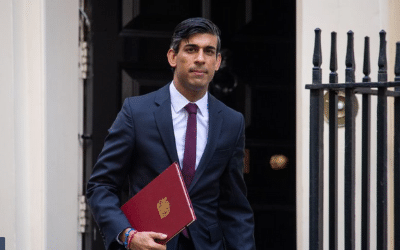Widespread full-time working from home will not become a permanent fixture of the UK economy and central London is destined to come back to life post-Covid, according to Rishi Sunak.
The chancellor told City A.M.’s The City View podcast that he’s “desperate” for “the buzz, the vitality and the creativity” that cities generate and that he’s “not one of those people that thinks the history book has been written on cities”.
“I think its just so sad the past few months, when you walk around London, and it would be the same in many cities, and you just see what has happened and the life has disappeared and gosh it’s sad,” Sunak said.
The Square Mile, Canary Wharf and other central London business districts have been largely empty since the first Covid lockdown in March 2020. A swathe of major financial firms – Lloyds Bank, HSBC and Standard Chartered – are now considering making the switch to working from home permanent for some staff and administering a hybrid model for others.
A survey by technology company FIS in November found 75 per cent of the UK’s investment banks would let staff work remotely for at least some of the time in the future.
However, Sunak said he believed the social nature of human beings meant that a wholesale return to offices is inevitable. “I think as human beings we’re social animals, we crave that interaction, we like going to theatres, to galleries, to restaurants, to see our friends, to see our work colleagues and have that spark of ideas that happens,” he said.
“I think all of that will come back and it’s a good thing that it does, because it makes our lives richer and our cities greater engines of economic growth.”
The government’s current work from home where possible instructions are expected to last into the spring at least.
The government is aiming to have administered vaccines to tens of millions of those at the most risk of dying from Covid.
Scientists believe all restrictions, including social distancing which makes office work difficult, will be in place until most of the population is immunised.


